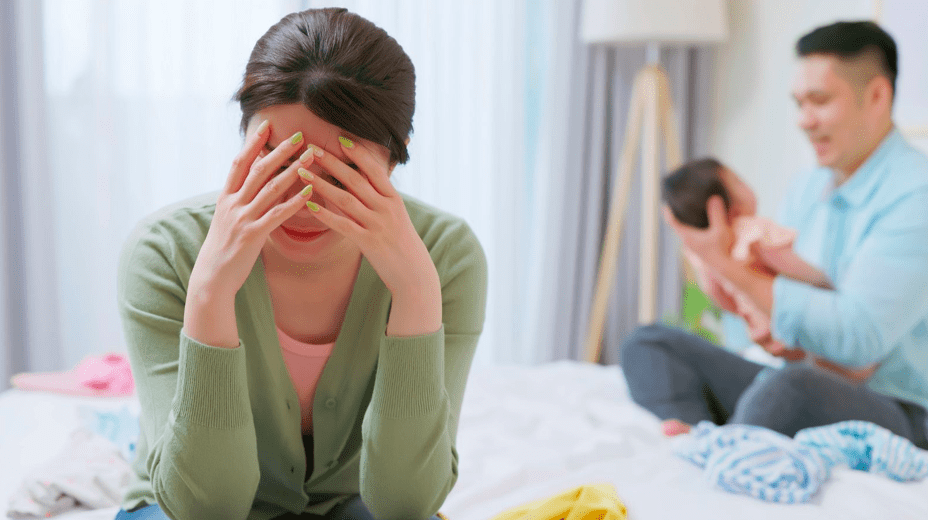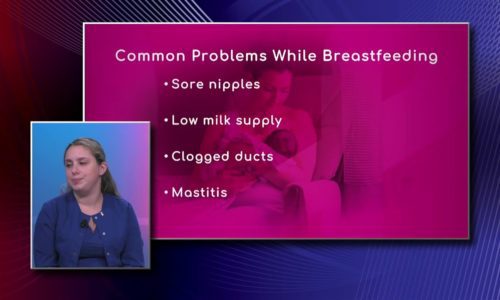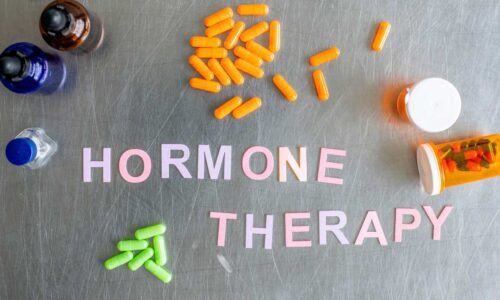Postpartum Struggles |

Most women are not prepared for what the body and mind go through after having a baby and this can sometimes become a huge struggle for a lot of moms. On an episode of Health Insiders, Teba Orueta, the CEO of DeNatura Wellness, talks about the postpartum experience and how mothers can take care of themselves during this vulnerable time.
Postpartum is an extremely difficult condition to deal with for a lot of women. You lose a lot of estrogen when you have a baby, and the sudden hormonal change can be overwhelming. Teba says that what makes it worse is that postpartum feelings are not often talked about. Teba says that women who have just given birth will visit the clinic and complain, ‘Why did nobody ever tell me about this? Am I okay?’”
These problems also get exacerbated by lack of sleep. Teba explains that sleep is our way of recovering, resting, and repairing. So, when that gets taken away, anxiety, depression, and irritability can fester. Lack of sleep-in combination with breastfeeding issues can also easily create self-doubt and self-judgment in the mother. These feelings can easily become postpartum depression. Teba says that about 15 to 17 percent of women giving birth are at risk for postpartum depression. Teba says that what she tries to do is help restore her patient’s body to how it was before pregnancy, helping the organs and structures of the body go back to their original place. She also wants to create a safe, nurturing, and supportive environment for the new mother and her child to help alleviate any emotional stress the mother may experience.
Postpartum depression is typically defined as depression or mood symptoms that present themselves three weeks or a year after childbirth. Postpartum depression is different from baby blues, which only last about two weeks after birth. Postpartum depression can vary in severity from person to person. Some postpartum depression symptoms you may experience are feelings of being overwhelmed, hopelessness, and anxiety. You might cry more than usual, be irritable, and have trouble attaching to the baby. Teba emphasizes that these are all very normal and temporary feelings, though they can be felt for many months, so it is best to address them early.
Help and support are key to coping with postpartum depression. It is important to accept help from family and friends so you can get as much rest as possible and carve out time for yourself. Avoiding alcohol is also known to help.
It is important for mothers to understand postpartum depression is not a character flaw or a weakness. Teba says that it takes a village to tackle postpartum depression and help women understand that there is nothing wrong with them. “We need to encourage an environment where mothers, aunts, and neighbors can share their experiences and help new mothers feel supported,” she advises. The interviewer mentions books actress Brook Shields wrote about her postpartum experience which can help destigmatize the subject and provide more intimate resources on what types of feelings women can expect.
Teba says that massage therapy can also be helpful for some women. “What we do a lot of the time in the session with the massage is bring back a lot of that energy back to the mother who’s lost a lot of it. She’s lost a lot of heat, she’s lost a lot of energy, she’s carrying a little bit of extra weight. So, we’re going to be applying different techniques to also help the structures that have moved,” Teba explains. Massage therapy for new moms focuses on bringing the pelvis back to the center and the gluteal area, where there is usually a lot of sciatic pain. One of the things Teba says she does the most is help with diastasis rehabilitation. Diastasis is when the midline of the abdomen opens up like a zipper because of pregnancy. This can happen to both pregnant women and people with large abdomens, like beer bellies. She also does work fixing the pubic symphysis, a pelvic joint that can open or be displaced during childbirth. Teba says that she treats this with a mix of exercise and acupuncture, which she feels are essential therapies to undergo in the postpartum phase.
Many women can also experience tailbone pain and tenderness after giving birth. It can make it excruciating for women to sit, stand, and it also can hurt during bowel movements. Usually, this pain happens because during the birthing process the tailbone ruptures and you have a break in the tailbone. Teba says that if you are experiencing this pain, it is always best to work with a physical therapist and get extra cushioning for your chairs and car seat. Acupuncture is also a good, non-invasive way of combating pain. Massage therapy can help alleviate tailbone pain symptoms if most of the pain is coming from damaged soft tissue. Tissues in the tailbone and gluteal muscles can benefit a lot from muscle relaxation techniques that can relax the entire pelvic area to also help reduce the pain.
To watch more videos on postpartum care, visit the Health Channel’s YouTube channel at: https://www.youtube.com/c/AllHealthGo








